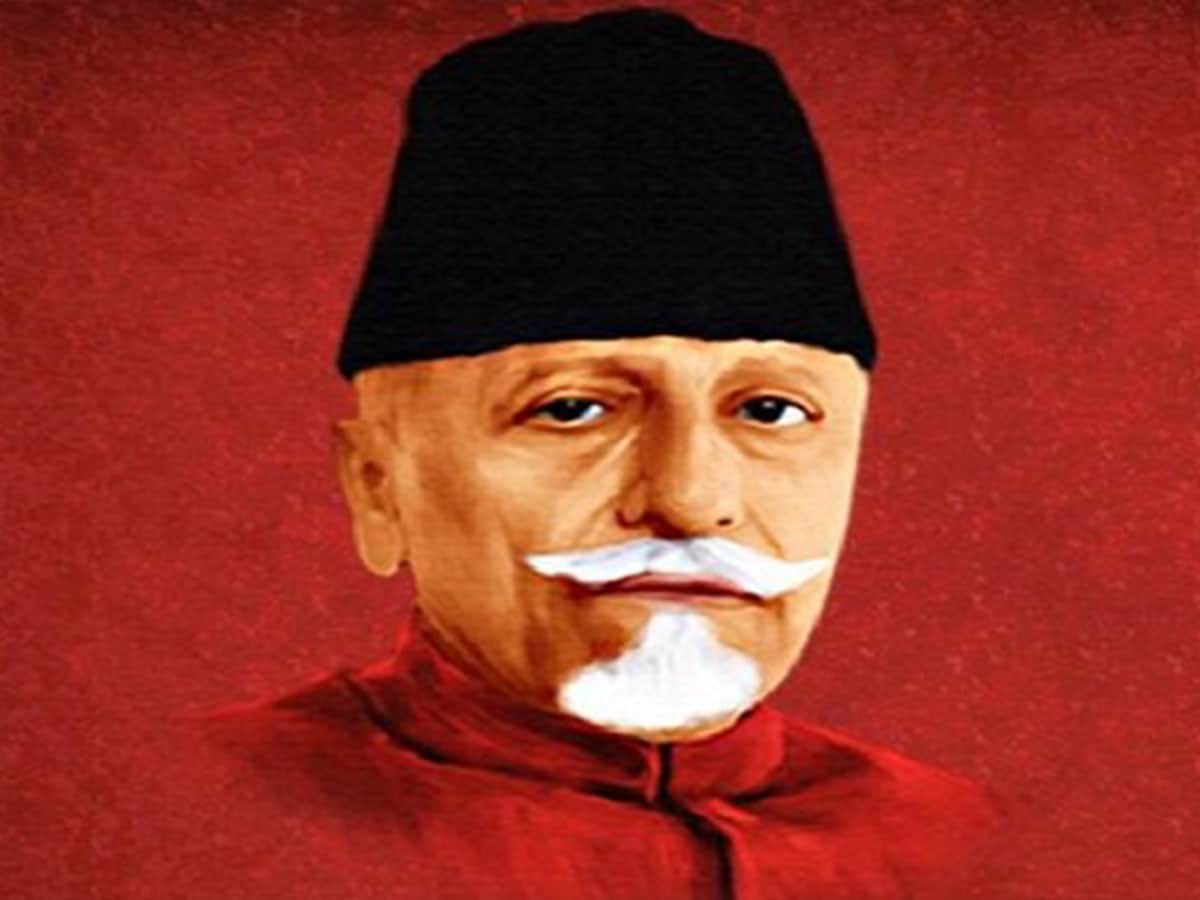
Freedom fighter Maulana Abul Kalam Azad (1888-1958) spent close to 10 years in British prisons. Out of these, three years (1942-1945) were spent at Ahmed Nagar Fort. The faint-hearted prisoners would have blamed their fortune, complained of the hardships of prison life. Maulana Azad used the time to pour out his heart into writing letters.
No, he didn’t write letters to the government, to God or to any among hundreds of his ardent admirers in the subcontinent. Out of dozens of close friends, he, in those solitary moments, thought of Nawab Sadar Yar Jung Bahadur Maulana Habibur Rahman Khan Sherwani, Nawab of Bhikampur near Aligarh. He kept writing letters to him. The letters were not posted.
Why did Maulana Azad choose Habibur Rahman Khan, out of his legion of friends, to address the letters which were compiled, post-release from prison, as Ghubar-e-Khatir. It became instant hit and flew off the shelves. These are not just letters. They carry commentaries on life, religion, behaviour of birds nested inside the old fort, change in season and the history of tea. Nobody enjoyed making and sipping tea like Maulana Azad did. The book is a milestone in Urdu prose’s history?
So, who was Habibur Rahma Khan to whom Maulana Azad wrote letters from prison? Belonging to the nawab family of Bhikampur, Habibur Rahman Khan’s father Mohammed Taqi Khan built a citadel adjacent to Bhikampur for his son and named it Habib Ganj. The citadel or garhi in Urdu had a beautiful garden and opulent mansions.
Unlike scions of many contemporary Maharajas, Rajas and Nawabs who kept harem and stable where horses of Arab breed received royal treatment, Habibur Rahman Khan had lost his heart to books. He loved reading and writing, prolifically penned prose and poetry and created a rich library that stocked many rare books and manuscripts.
His reputation as a patron of arts, scholars and scholarship spread far and wide. He also headed AMU’s Theology department and the seventh Nizam of Hyderabad, Mir Osman Ali Khan, appointed him head of religious affairs of the Hyderabad State. He became even first Vice-Chancellor of Osmania University on its founding in 1919. Acknowledging his love for letters and services, Mir Osman Ali conferred the title of ‘Sadar Yar Jung Bahadur’ on him. Habibur Rahman returned to Habib Ganj in 1930 and got himself associated with several educational institutions and remained engaged in seeking and spreading knowledge till his death in 1950.
Habibur Rahman Khan first met Maulana Azad in 1906 in Lucknow where the latter assisted Maulana Shibli Numani to edit Al Nadwa, the mouthpiece of Islamic seminary Nadwatul Ulema. Shibli, after quitting Sir Syed Ahmed Khan’s MAO College in Aligarh had joined the Hyderabad state but returned to Lucknow to edit Al Nadwa. Shibli was 48 and Maulana Azad 17 when the two first met in Bombay in 1905. A story has it that when legendary poet and Sir Syed’s biographer Altaf Hussain Hali first met Maulana Azad at a function in Lahore, Azad was so young that Hali mistook him for his son. He thought Azad had sent his son on his behalf.
So, in one of his letters, the last one in Ghubar-e-Khatir, Maulana Azad details how he fell in love with music. His passion for books would often take Maulana Azad to a bookshop owned by one Khuda Bakhsh at Wellesley Street in Calcutta. One day Khuda Baksh showed him a book on music by Saif Khan. A noble in the reign of Aurangzeb, Saif Khan was a scholar of Indian classical music and had translated a Sanskrit book in Persian and called it Raag Darpan.
Maulana Azad had a habit of devouring books he laid his hands on. He read Raag Darpan but couldn’t understand it completely as several terms and phrases hampered its comprehension. He became restless also because the British principal of Madrassa Alia in Calcutta had seen Maulana Azad with that book at the bookshop and humiliatingly remarked that “you would not understand it”. Azad took the challenge and resolved to learn music and understand the book. “There is a way where is a will,” goes an ancient maxim. Son of a revered Peer or saint to whom dozens of followers flocked daily seeking spiritual guidance, Maulana Azad couldn’t have revealed his new-found love for music to his highly venerated father. Among hundreds of disciples that his father’s ‘spiritual circle’ had, there was one Maseeta Khan. A former music trainer of tawaifs (sex workers) of Calcutta, Maseeta Khan had struggled hard and shed copious tears to endear himself to Azad’s father and enter the dervish’s charmed circle. One day Azad told Maseeta Khan about his burning desire to learn music. Now the problem was: where to hold the training sessions? Finally, Azad chose a friend’s house and every day for four-five years Maseeta Khan taught Azad the intricacies of music and musical instruments diligently and surreptitiously. Azad says he learnt to play many instruments but got mastery over sitar.
About his devotion to any work that he decided to do life, Azad, in his matchless, flawless, prose, writes: “Jis koocha mein bhi qadam uthaya, use puri tarah chchan kar chchoda. Sawab ka kaam kiye toh woh bhi puri tarah kiye, gunah ka kaam kiye toh unhein bhi adhura na chchoda (Whichever street I put my feet in, covered it entirely. If I did benevolent works, did them well. If I committed sins, didn’t leave them incomplete). Such candid confessions!
Azad writes that, though he gave up playing sitar later in life, love for it never left him. The sitar strings had left their mark on his fingers that lasted for years. Appreciate and respond to the beauty, he says, whether you find it in someone’s face, music or in the Taj Mahal. He feels sorry for those dead and deprived hearts who don’t react to husn or beauty.
In those days once he travelled to Agra. It was April. The days were hot but nights pleasant and breezy. Azad had a habit of working till late into the night. Nothing pleased him more than the solitude post-midnight provides. Those of us for whom reading and writing is both passion and profession know how enchantingly beautiful and satisfying it feels to write in the night’s loneliness. It is you and your thoughts and no third agent around to intrude your thought-process, to divert your attention. Azad had a friendship with night’s solitude.
He writes he would wait for the hour before dawn, take his sitar and go to the Taj. Seated near it, facing the Jamuna, under the moonlit night, he would begin a song and play the sitar. Night’s quietness, the shade of the stars, fading moonlight and soaring minarets of the Taj became witness to his performance. With the Taj’s marble dome bathed in moonlight while the galaxy of stars above and the slow flowing Jamuna below, it was a heavenly scene. Azad says he felt as if the world stood still to lend its ears to his music. Then he says he found branches in the trees shaking, the minarets dancing, turrets speaking to him. The so far quietly standing white dome of the Taj opened its shut tongue to communicate with him.
I am yet to come across such a delightful description of feelings a musician gets at the Taj Mahal. Shah Jahan would have embraced his beloved wife Mumtaz once more.
Mohammed Wajihuddin is a senior journalist associated with The Times of India. He is also a well known blogger. This is his latest blog.

